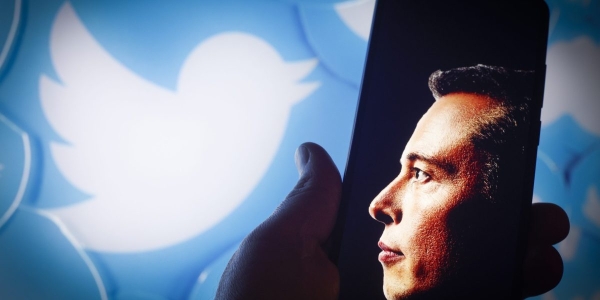
Elon Musk derided a report from Britain’s BBC that claimed hate speech directed at women was on the rise at Twitter since he acquired the social media platform.
Citing data from U.K. think tank Strategic Dialogue, the publicly funded broadcaster wrote on Monday there had been a 69% increase in new Twitter accounts created after the entrepreneur took over that followed misogynistic and abusive profiles.
The claims in the story contradict past assertions by Musk that hate speech was on the decline after a brief spike around the time he acquired the company in late October for $44 billion.
“Sorry for turning Twitter from nurturing paradise into place that has…trolls,” he tweeted in response, posting a screenshot of the article from an “organization calling itself [the] bbc.”
EXCL: Twitter insiders have told me and BBC Panorama it’s no longer able to protect users from trolling, state-co-ordinated disinformation and child exploitation. Exclusive data and Twitter users’ testimony suggests hate & trolls are thriving. BBC One, 8PM.https://t.co/EhfMapHayV
— Marianna Spring (@mariannaspring) March 6, 2023
Musk has been a lightning rod of controversy from the very moment the self-described “free speech absolutist” bought the company under duress.
Just hours after he showed up in headquarters for the first time carrying a prop sink as a gag, he spread spurious claims that the attack on the husband of former House Speaker Nancy Pelosi might have been a gay lover’s quarrel. Musk later apologized in January.
Moreover, after pledging from the outset Twitter would not devolve into a toxic cesspool for advertisers, he swore to launch a “thermonuclear name & shame” campaign against those companies that stopped spending on Twitter ads.
Moderating influences like Esther Crawford, who reportedly helped smooth differences between Musk and Apple CEO Tim Cook, have since been let go.
The BBC report also spoke with ex-staff including Lisa Jennings Young, Twitter’s former head of content design and one of the people who specialized in introducing features designed to protect users from hate.
After Musk laid off her entire team, Jennings Young told the U.K. broadcaster she chose to leave in late November and could no longer identify features that helped mitigate online attacks.
“There’s no one there to work on that at this time,” she said in the report.
Twitter’s aim to supplant mainstream media as a news-gathering force
Musk’s derisive reaction to the report should come as no surprise.
The centibillionaire is an ardent critic of trained reporters, going so far as to cut all lines of communication by firing all of Twitter’s public relations department in line with measures he had already long taken at Tesla.
Instead, he wants to position Twitter as the ultimate crowdsourced news gatherer, relying on a volunteer army of “citizen journalists” that he claims are more trustworthy than professional media with their editorial slant.
Hate speech impressions down by 1/3 from pre-spike levels. Congrats to Twitter team! pic.twitter.com/5BWaQoIlip
— Elon Musk (@elonmusk) November 24, 2022
Musk has, however, tweaked the platform’s recommendation algorithm to boost the reach of his $8-per-month subscribers as a service perk of Twitter Blue in a type of pay-to-play scheme.
“As Twitter pursues the goal of elevating citizen journalism, media elite will try everything to stop that from happening,” he posted in November. In January he then commented that the “media want to control what you know.”
Musk also angered human rights groups after he gutted teams responsible for monitoring human rights and hate speech, for example, in foreign languages that artificial intelligence struggles to understand contextually and filter out.
“We’re not talking about…hurt feelings, we’re talking about the prevention of dangerous genocidal hate speech,” the executive director of human rights group Equality Labs told reporters at the end of November. “It just takes four hours from a tweet to go into a mass atrocity in the Indian context.”
In a bid to restore confidence that post-Musk Twitter is no longer putting its thumb on the scales of social debate, a criticism he leveled at it under previous management, Musk promised last month to reveal its inner workings by making the platform’s proprietary recommendation algorithm open source.
Nevertheless, despite the promise it would be done before March, he has not delivered.
